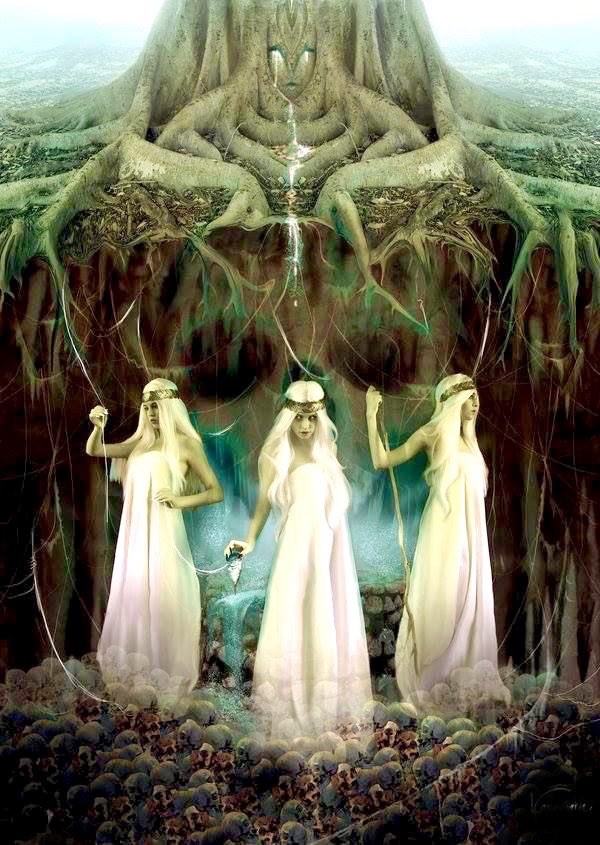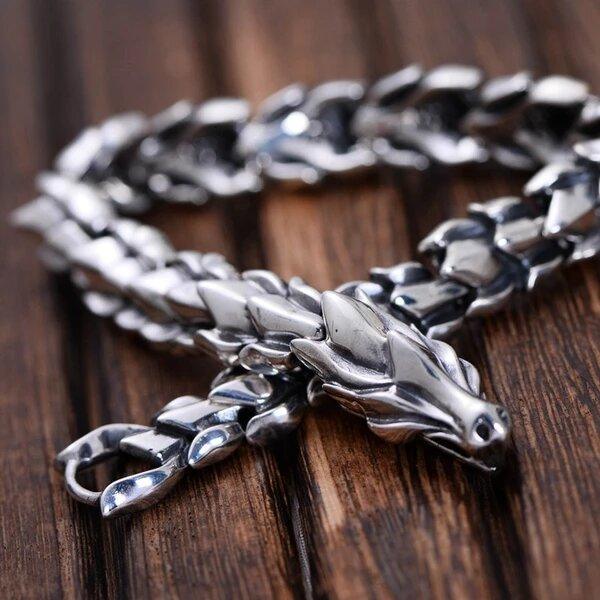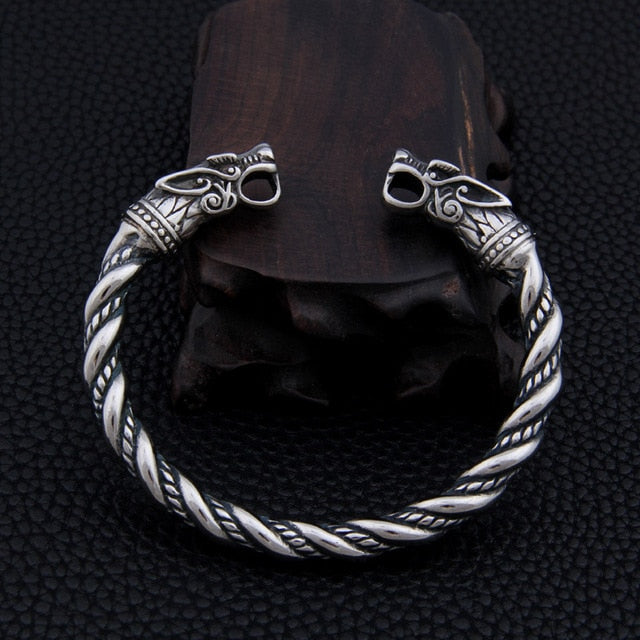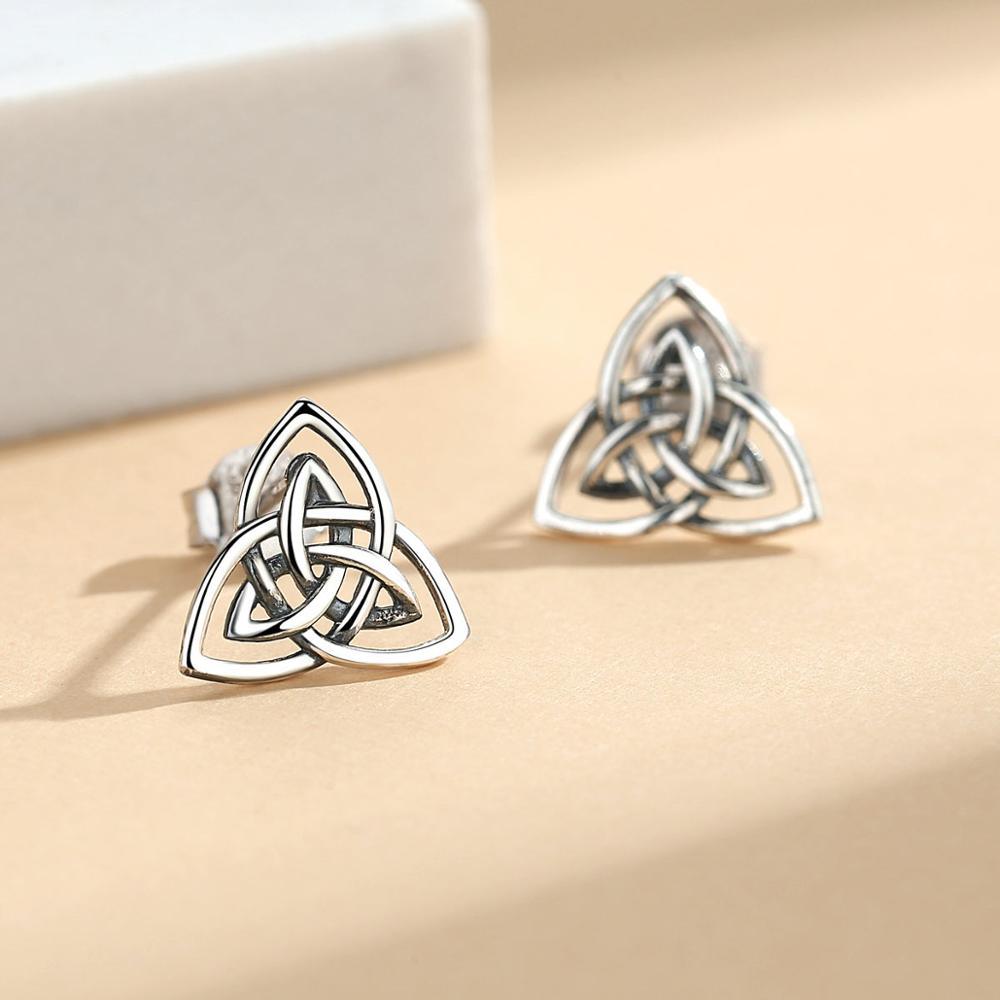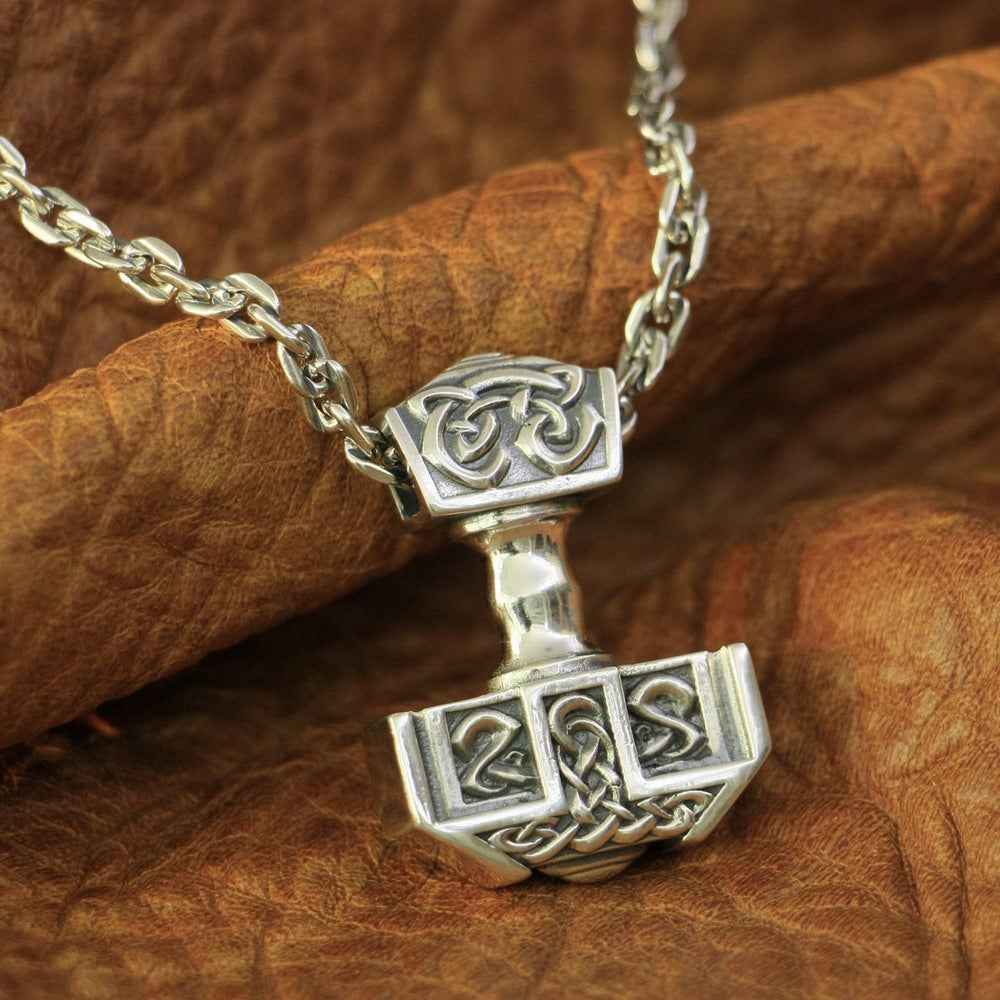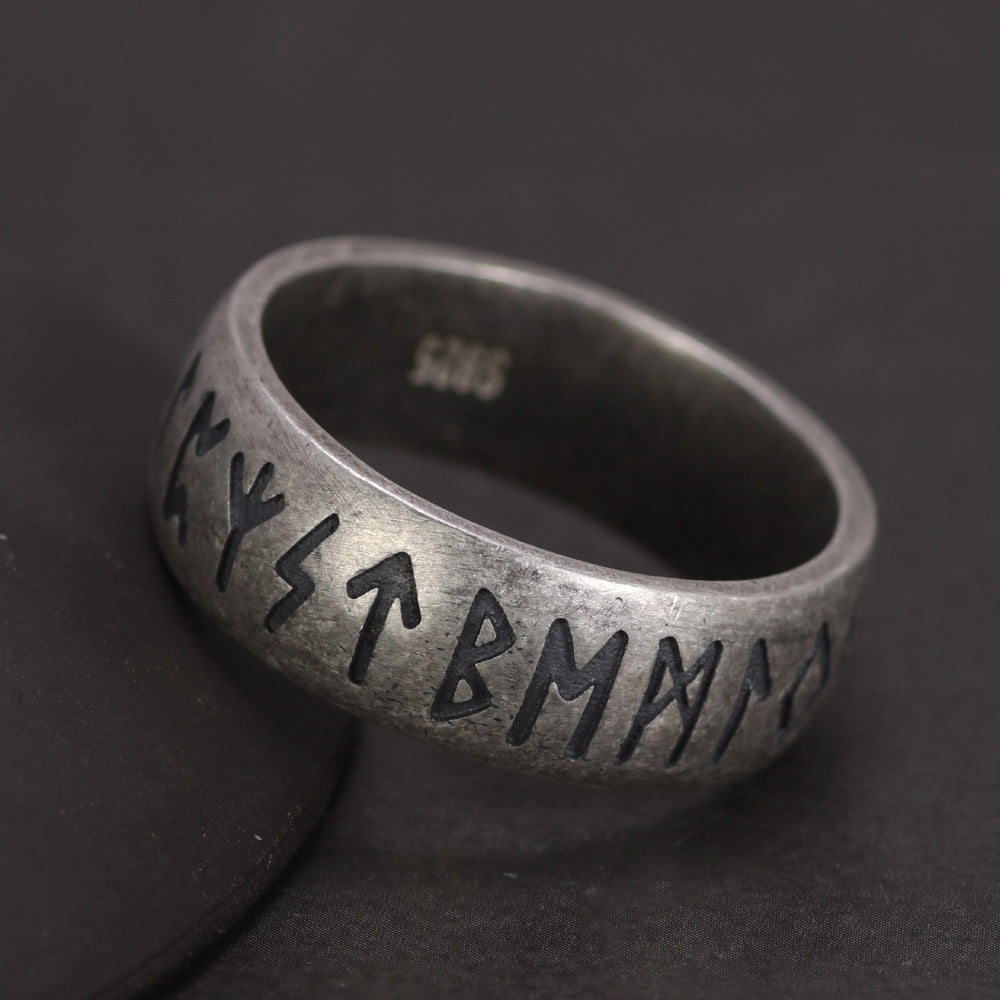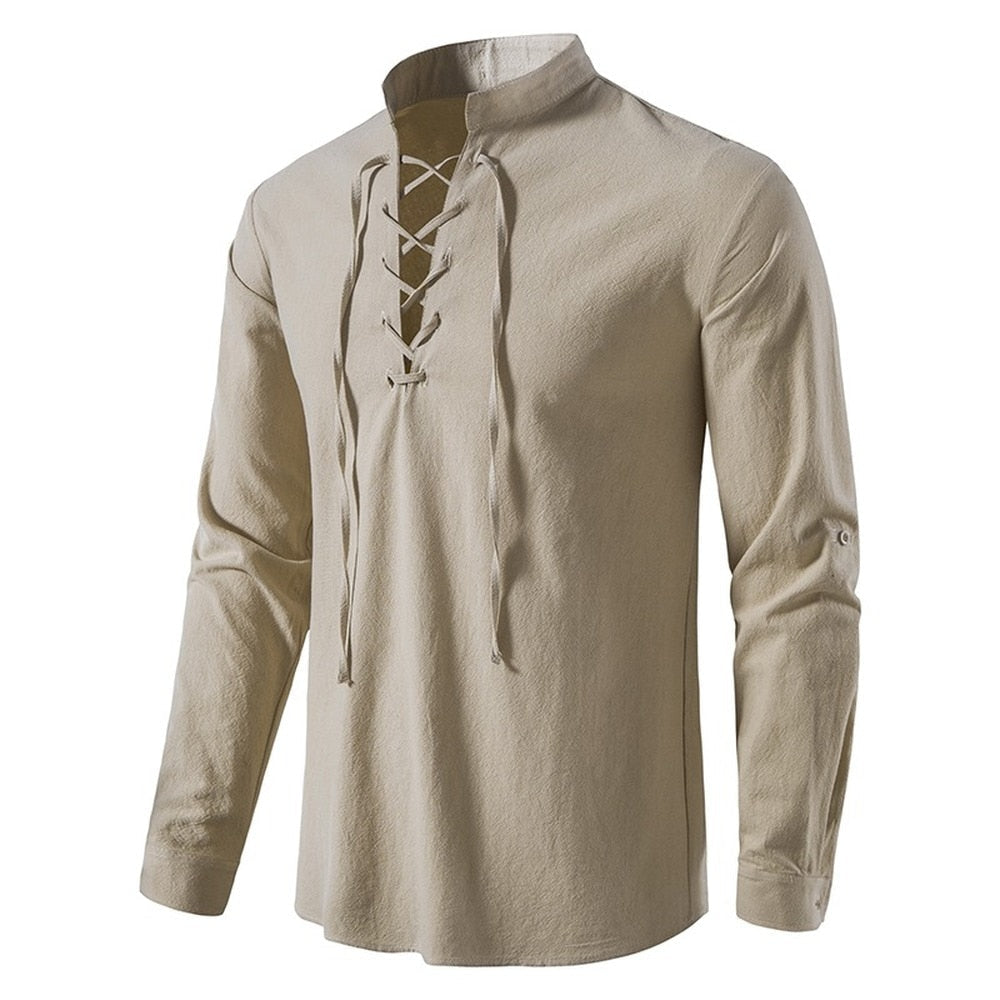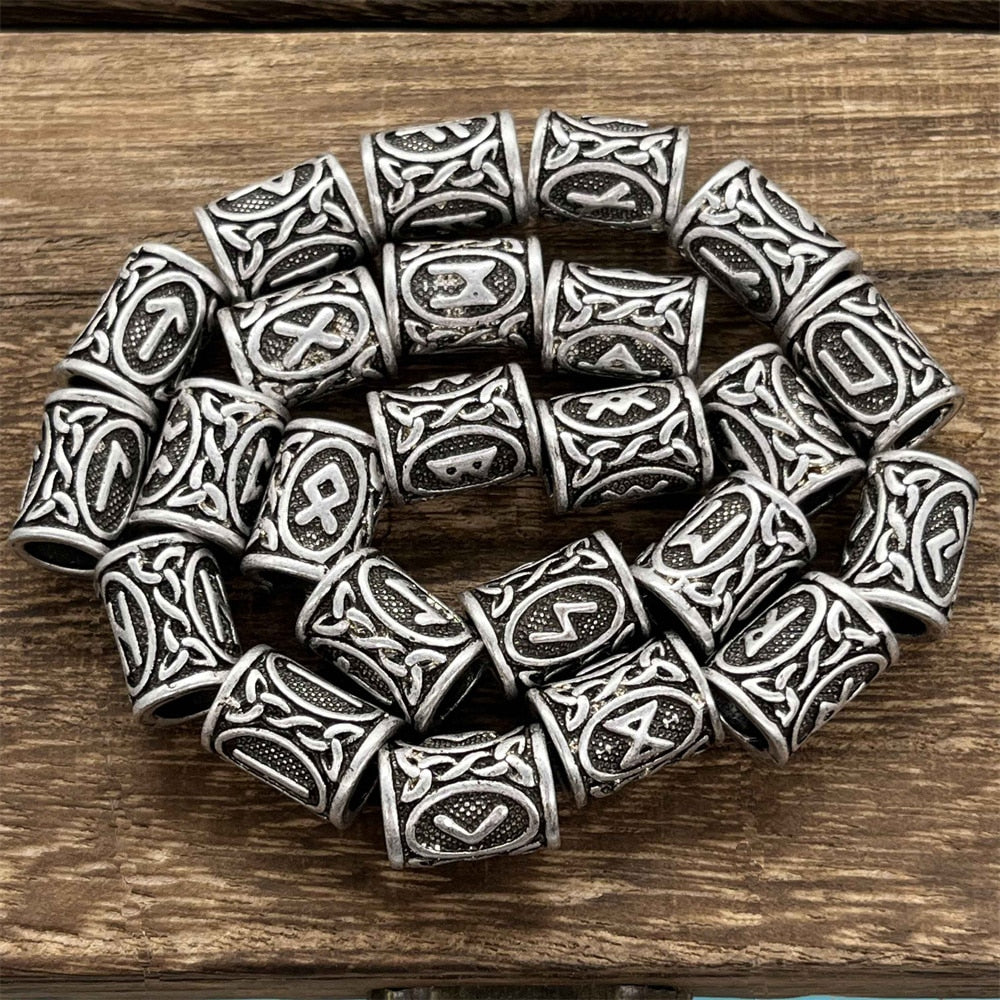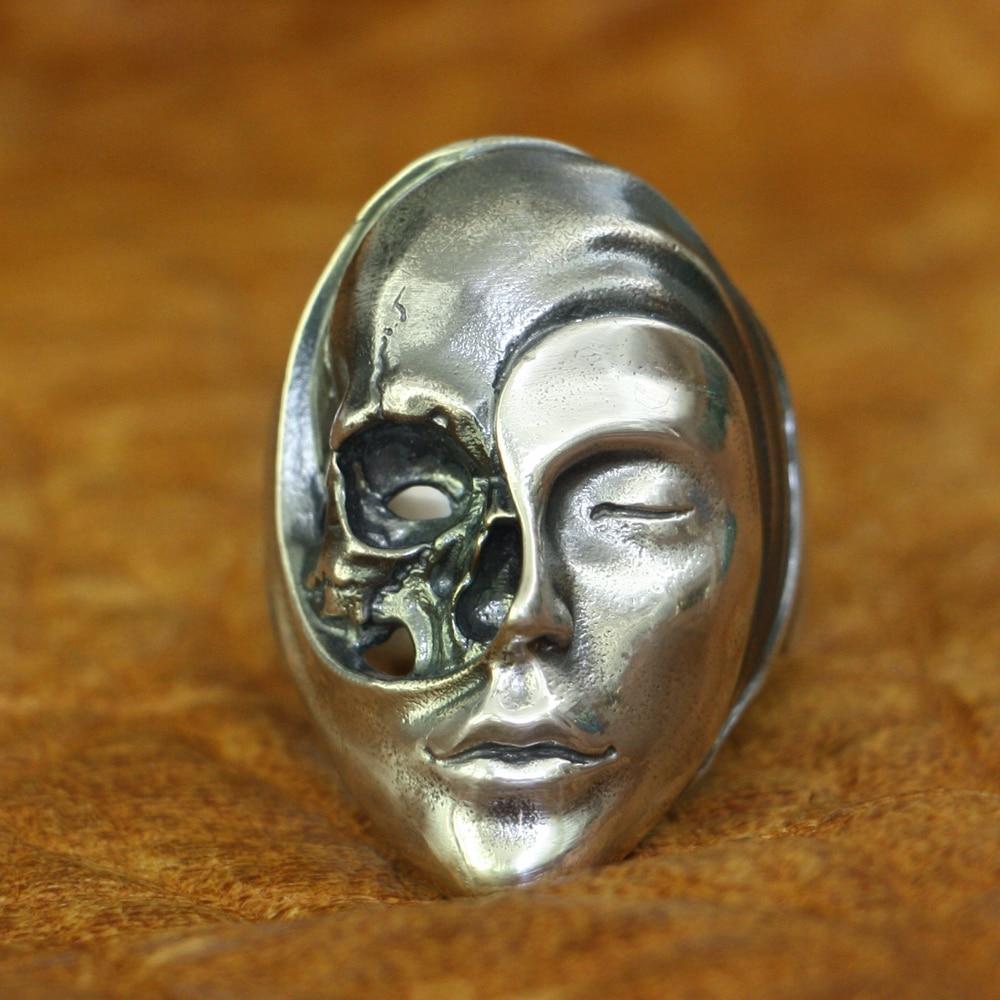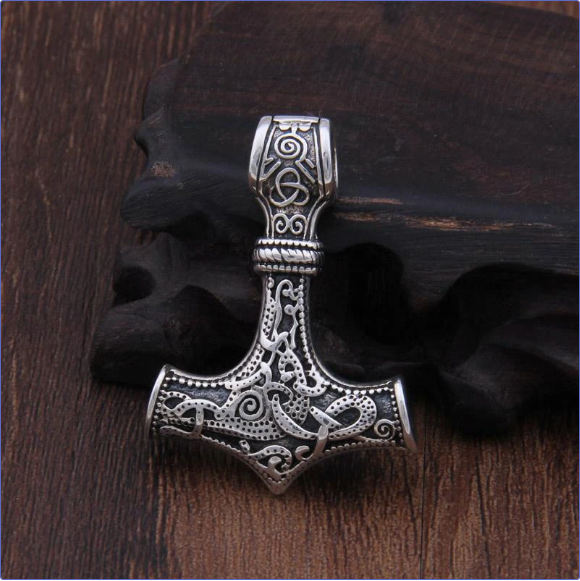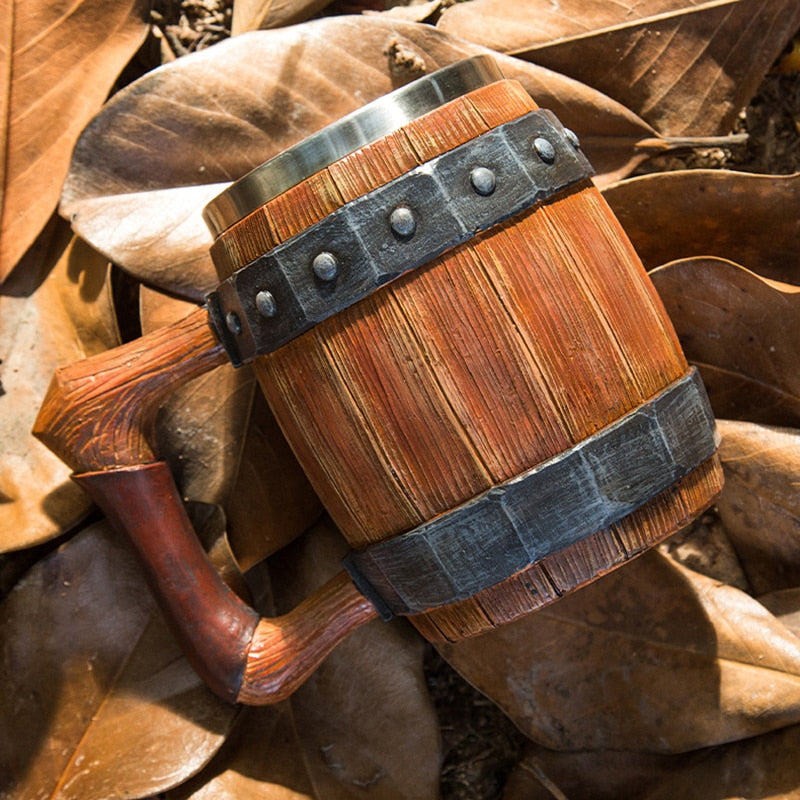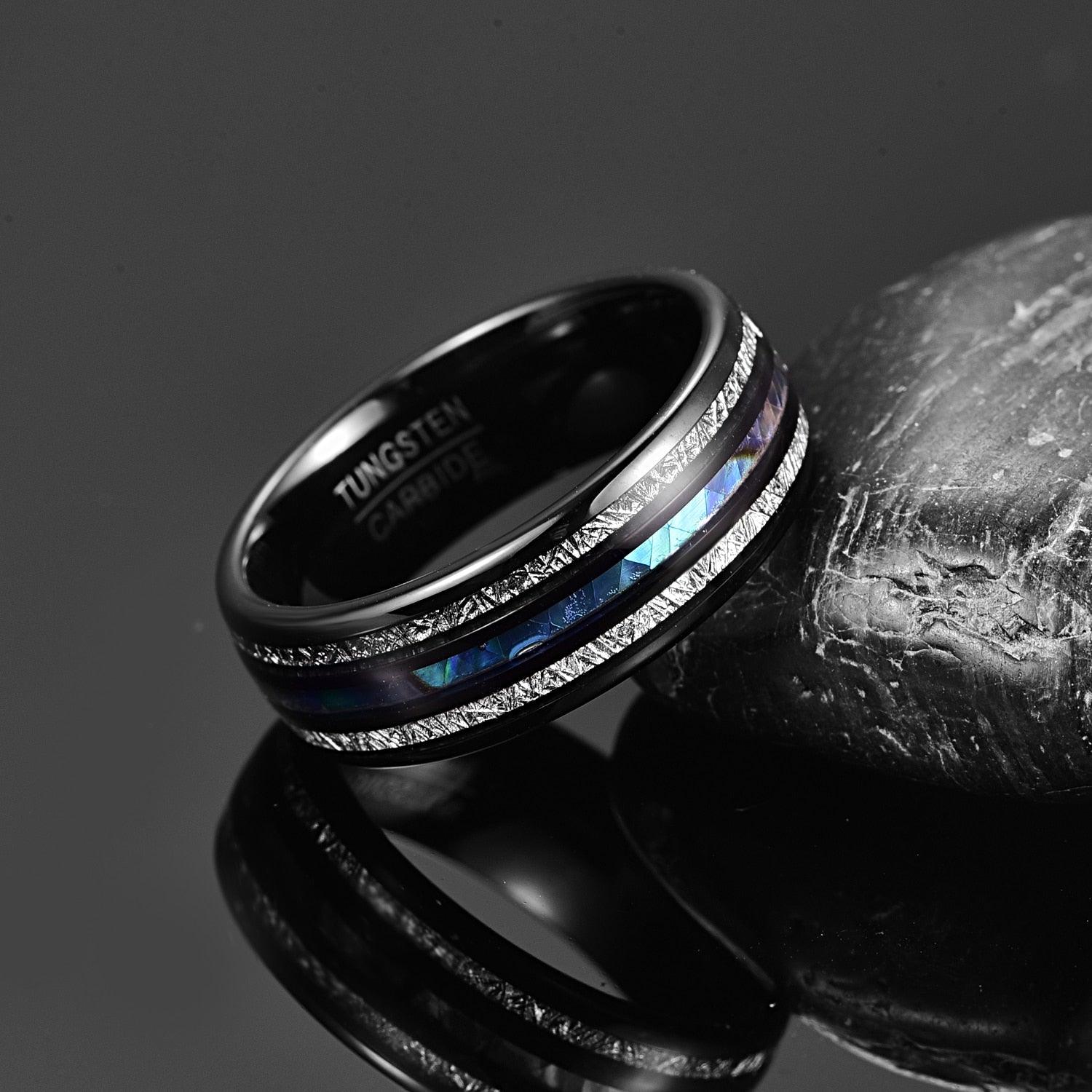According to the poem Völuspá, the Norns are mysterious beings, not giants nor Gods, but a category unto themselves. There are three of them, and their names suggest their ability to construct the contents of time. They are named Urd (Old Norse Urðr, “The Past,”); Verdandi (Old Norse Verðandi, “What Is Presently Coming into Being”) and Skuld (Old Norse Skuld, “What Shall Be”).

Large wooden statues of the Norns at a museum in Ribe, Denmark
They dwell in a hall standing near the Well of Urðarbrunnr, (“Well of Fate”) or Urðr (the name of first sister), beneath Yggdrasil, the mighty tree at the center of the cosmos which holds the Nine Worlds in its branches and roots.
The Norns have the very important task of helping keep Yggdrasil green and healthy. They fulfill their duty by carrying water from the well Urðarbrunnr and collecting the moist earth or clay that lies around the well and pouring it over the tree of life Yggdrasil. This duty is performed each morning by the sisters and, should fail to do this daily task, Yggdrasil will start to rot.
They also carve mysterious runes into the trunk of Yggdrasil, which will have an effect on all nine of the worlds in the tree’s branches.

The Norns are mostly known for weaving the tapestry of fate – Wyrd. Each string on their loom is the fate of one person, which is then intertwined with the threads of all other people to form the tapestry.
According to Völsungakviða, when a new child is born the Norns will appear at its birth to decide how long the newborn should be allowed to live. While observing the child, the Norns will measure the child’s lifespan, its fate, both good and bad, and weave it into a thread of life. Even the Gods have threads of their own in the tapestry, but the three Norns will never let them see them. Only they know what fate has in store for all who live in the cosmos, a secret knowledge that commands the respect of Odin himself.

The stave representing the Tapestry of Wyrd
The Norns were very respected by the common people, and it was quite common to serve a special kind of a porridge called norn porridge to a woman who had just given birth.
This ritual was a kind of offering to the Norns, and the Norse way of showing them the respect that they deserved. This ritual was probably done with the intention of bribing or being on the good side of the Norns, who in return would bless the mother and the child with a good Wyrd (fate).
Despite being deeply respected, there has not been found any evidence that the Norns were worshiped. People often lamented their fate in the Old Norse literature, as well as in ancient and medieval Germanic literature, but no petition to the Norns to change said fate was recorded. In the Norse view, fate was blind and utterly implacable. One cannot change his fate. All that is left to decide is how to face said fate.
May the Norns smile upon your Wyrd!
